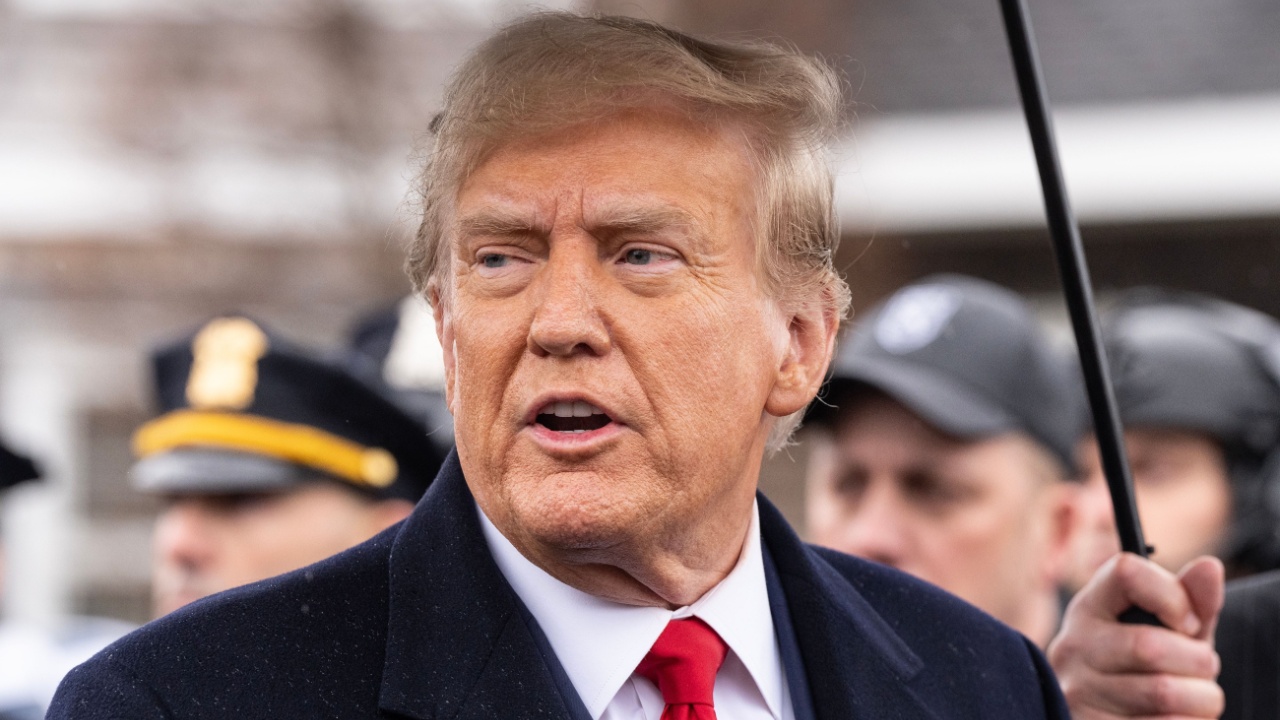Convicted by the ‘Rational State’

Editor's Note
The following observations were compiled by Glenn Ellmers from conversations with Dr. John Marini, the most insightful living scholar of the administrative state. Marini studied with Harry Jaffa—the intellectual godfather of the Claremont Institute—and applied Jaffa’s interest in the philosophical study of America to the particular problem of bureaucratic “rationality” and centralized government. Professor Marini recently retired from a long and distinguished teaching career at the University of Nevada, Reno.
Donald Trump’s criminal conviction in New York last week must be understood in terms of a political war that has been going on since Watergate. This 50-year fight—between the American people and an increasingly powerful ruling class—is the last stage of a project that began over a century ago, when progressive intellectuals imported German political science into America with the explicit aim of transforming the Constitution. In place of a representative government chosen by the sovereign American people, a new ruling class claimed superior intellectual authority, derived from “rational” empirical science and its methodology. The Constitution may continue to exist in name, but it has mostly been replaced by an administrative state of bureaucratic experts.
Trump is the greatest threat to this ruling class since Richard Nixon. He has therefore aroused more raw political passion than anyone in recent memory. Making him a convicted felon is a calculated gamble to keep him from returning to the White House. There is a risk it could backfire. But the ruling class knows that Trump is entirely alone in the political establishment. He has the support of millions of voters—almost certainly a plurality of the American people. But he is opposed by virtually all of the influential social, economic, political, and cultural interest groups that determine the outcome of elections.
When most elected Republicans and conservatives accepted the legitimacy of the globalist interpretation of the 2020 election, they abandoned the rule of law for hundreds of American citizens. These citizens were called insurrectionists and were denied basic rights by a Congress and courts that funded and conducted what was clearly an elaborately staged hoax. The first, and still the greatest, political hoax in American history was Watergate, which first confirmed to the expert class that it could rule without consent. The official interpretation of Nixon and his legacy has dominated public opinion for the last half century. To this day, the delegitimizing of Nixon has given powerful support to the “rational structures” in government which have replaced the Constitution.
Now, Trump must be delegitimized in the same way. It remains an open question—the great question of our time—whether this will succeed. The ruling class is encouraged because, as with Watergate, it has so far successfully imposed an interpretation on recent political events that all the dominant institutions in our society accept as authoritative. To challenge this interpretation risks censorship, firing, SWAT teams invading one’s home, de-banking, jail, and even one’s life. Still, despite the great risks, a steadily growing number of people rise to challenge it.
Not the conservative and Republican establishment, however. The experts in the rational state have learned that this establishment will accept anything demanded of them to avoid a fight. They will bow down to any interpretation and will tolerate the injustice imposed on their fellow citizens, because they refuse to act politically in a manner that would make it possible to perpetuate their way of life. Those in the conservative establishment accept the intellectual premises of the experts, and have made it clear they would prefer to be ruled rather than lose their economic, social, and political status.
Yet the authority of the rational bureaucracy remains insecure until the threat of Trump can be neutralized. He threatens to unite the country around an understanding of the older America—an understanding that denies the authority of the rational bureaucracy. What they have done to Trump, and his response, has now made the problem political in such a way that it cannot be resolved without a fight.
In 2016, Trump was understood wholly in terms of the personal, which means in terms of his moral virtue or his character. He is despised for resisting the “woke” morality of the ruling class, yet is judged according to the old morality. Even now, very little is said about Trump’s record as president. Instead, he is demonized over private vices made public: sex, race, gender, wealth, and private power.
No political figure in our time is similarly judged in terms of character, of moral virtues and vices. (Imagine trying to defend Joe Biden or Bill Clinton by the standard of traditional morality.) But Trump has one political virtue that even Aristotle would recognize: courage. With this criminal conviction, it seems that Trump will now be judged politically, even by those who insist on assessing him in terms of his personality. What happened to Trump last week helped in transforming Trump from an obnoxious personality into a national savior.
Things are now becoming clear even to those who haven’t been paying attention, or were in denial. The citizens of the country are realizing that their way of life is dependent upon opposing the ruling class. They are beginning to realize that Trump is protecting their rights, and he is paying a price for his actions in a way that it is not simply personal, but political. Whether the American people themselves are willing to accept the hardship and costs of opposing the ruling class remains to be seen.